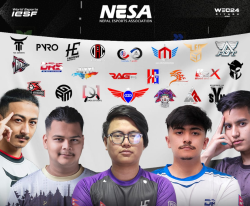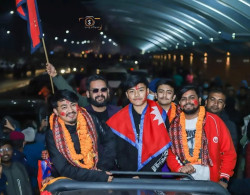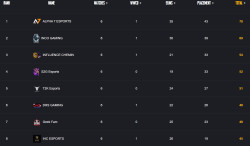Esports
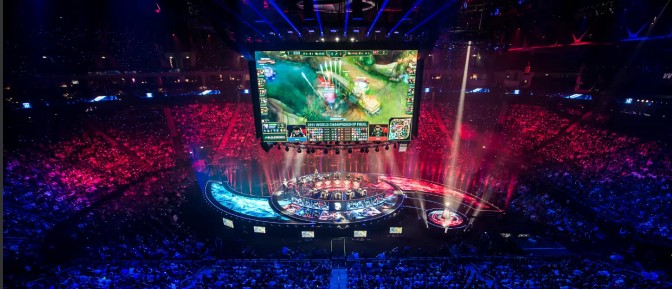
If you consider clinging onto a computer and playing games for hours unproductive and a waste of time, you might want to change that thought.
In recent years, the craze for esport has grown phenomenally. According to Statistica, a leading provider of market and consumer data, 532 million people follow online competitions. In a short time, their organisation has grown from small rooms in cyber cafés to huge stadiums packed with 70,000 people.
With the esport market valued at $1.28 billion in 2021, this new kind of sport has attracted thousands of professional players who play full-time and make a living.
Nepal also carves out a still discreet place in esports. The market is underdeveloped at the moment, but some esports players see it as a market with great potential.
Kaushal Acharya (aka Arabpati), player and CEO of Arabpati Esports, said winning a world championship can "set you free from economic hardships" for your whole life.
For instance, a winning team member can earn $4 million in 'The International of Dota 2. For comparison, the winning team of ICC Men's World Cup Cricket 2019 pocketed $4 million, which translates into $400,000 per player.
The prospects look bright even in Nepal, with a player making anywhere between $600 and $1200 a month competing against an international pool of players in PUBG competitions online.
Abishek Magar, popularly known as Shifu Sir in the gaming circle, plays and owns Dead Eye Guys. "Our team racked up around Rs10 million from tournaments and sponsors in the past five months," he said.
Dead Eye Guys recently bought a Mongolian PUBG team, the South Asia PMCO (PUBG Mobile Club Open) champions. The team boasts one of the largest fan bases in Asia.
Created in 2019, Dead Eye Guys has logged approximately $115,000 in winnings. Similarly, DRS Gaming and ElementriX won around $195,000 and $45,000, respectively, according to Liquipedia.
Gaming Economics
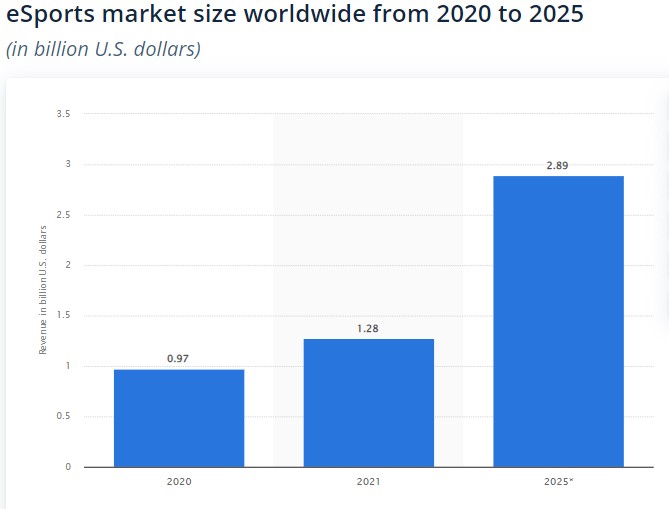
The earnings may vary, but everyone in the esports quarters agrees that the gaming industry is clocking exponential growth in Nepal – and zooming out to the whole world.
Acharya, who jokingly calls himself a ‘billionaire boy without money’, pockets around Rs100,000 a month. However, he is not a competitive player but a streamer who engages his viewers with funny commentary and gameplay.
"Competitive players managed by a gaming company earn more than Rs300,000 a month," he said.
And literally, the sky is the limit for the masters in the gaming industry.
Some of the top Nepali players – known as outliers in the gaming community – make more than Rs1.5 million a month, Acharya said. He would not identify those gaming millionaires, though.
Acharya, who started online tournaments in Nepal with Rs100 recharge cards in prizes, currently has 12 people on his company’s payroll, with around 15 more working as freelancers.
A few days before Phulpati during this Dashain festival, Acharya had been in a rush. He had to deliver a goat to Dead Eye Guys Bootcamp after they won the ‘Khasi (Goat) Cup’ tournament.
"Khasi Cup is something many of us relate to a cultural thing in villages. Now we are reviving it into esports," Acharya said.
And the gaming companies are taking root.
“We employ more than 15 persons here and our salary here starts from Rs50,000 to Rs 120,000 a month," Magar (Shifu Sir) told NepalMinute.
A player’s income depends on the streaming viewership, tournaments and sponsors, among others, Magar said.
After acquiring Mongolian PUBG, his company Dead Eye Guys recently purchased a Nepali Arena of Valor (AOV) team. The AOV will represent Nepal in the Asian Games in China next year.
While Magar declined to give the figures of those takeover deals, they would run into millions considering the teams’ successes.
Money-spinner
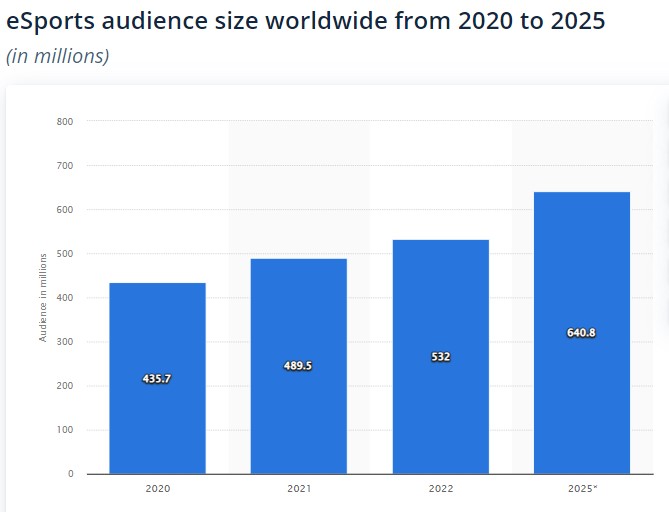
Those in the gaming industry see esports as a money-spinner.
These ‘streams’ have become a new source of income. That is to say, outside of the competitions, the players will broadcast live their ‘classic’ video games.
The opportunity for them to create a community of fans: the player films his face in the corner of the screen while speaking directly to his spectators and answering their questions. The brands will then sponsor the players and thus supplement their income.
"However, streaming should be interesting and engaging. And as a player, you need to stand out from the crowd," Acharya said.
Companies like Facebook approach some players to stream games on their platforms. Players can earn more than $10,000 a month from Facebook.
Besides, streamers collect donations from fans through premium stickers or on the super chat feature on various platforms.
Merchandise appears farfetched for a small and comparatively low-income society in Nepal. But they are a source of income for some local outfits that regularly compete internationally.
"Nepali teams are really popular all around the world in PUBG and FreeFire, so merch selling makes complete sense for them," said Acharya, hinting at millions that popular teams like Dead Eye Guys, DRS and ElementriX are making by selling merch.
Hurdles and hopes
However, esports in Nepal is in its infancy, and investors are still unsure about the return on their investment.
"Local sponsors are hard to convince," said Suraj Dangol, president of Nepal Esports Association (NESA). He, however, added that the association has been working to create investment appeal among the private sector.
Industry insiders urge those at the helm to do more to get esports into the mainstream.
"NESA should draw the government’s attention towards challenges facing the gaming industry. That would help develop esport as one of the income sources in Nepal," Acharya said.
Hosting more tournaments is one way to mainstream esports. Not only does it retain current players, it also helps attract new ones, expand the fan base and create a buzz in the market.
Dangol admits tournaments are not being organised quite often. "We haven't been able to organise tournaments with big prize pools for a while now," he said, referring to the Covid-19 pandemic that made sponsors hesitant to invest in esports.
Dangol is pinning hopes on Team Nepal to win something big in the international arena and create some buzz.
"We're optimistic for Asian Game performance. If we crack that, we can create an esports buzz in Nepal."
